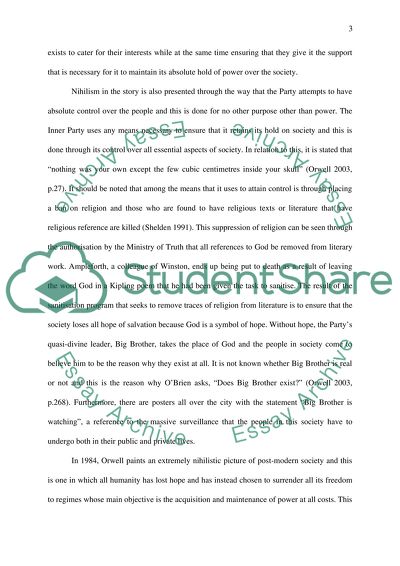Cite this document
(“George orwell's 1984: nihilism (and anti-God, postmodern society and Essay”, n.d.)
George orwell's 1984: nihilism (and anti-God, postmodern society and Essay. Retrieved from https://studentshare.org/literature/1683052-george-orwells-1984-nihilism-and-anti-god-postmodern-society-and-self-destruction
George orwell's 1984: nihilism (and anti-God, postmodern society and Essay. Retrieved from https://studentshare.org/literature/1683052-george-orwells-1984-nihilism-and-anti-god-postmodern-society-and-self-destruction
(George orwell's 1984: Nihilism (and Anti-God, Postmodern Society and Essay)
George orwell's 1984: Nihilism (and Anti-God, Postmodern Society and Essay. https://studentshare.org/literature/1683052-george-orwells-1984-nihilism-and-anti-god-postmodern-society-and-self-destruction.
George orwell's 1984: Nihilism (and Anti-God, Postmodern Society and Essay. https://studentshare.org/literature/1683052-george-orwells-1984-nihilism-and-anti-god-postmodern-society-and-self-destruction.
“George orwell's 1984: Nihilism (and Anti-God, Postmodern Society and Essay”, n.d. https://studentshare.org/literature/1683052-george-orwells-1984-nihilism-and-anti-god-postmodern-society-and-self-destruction.


